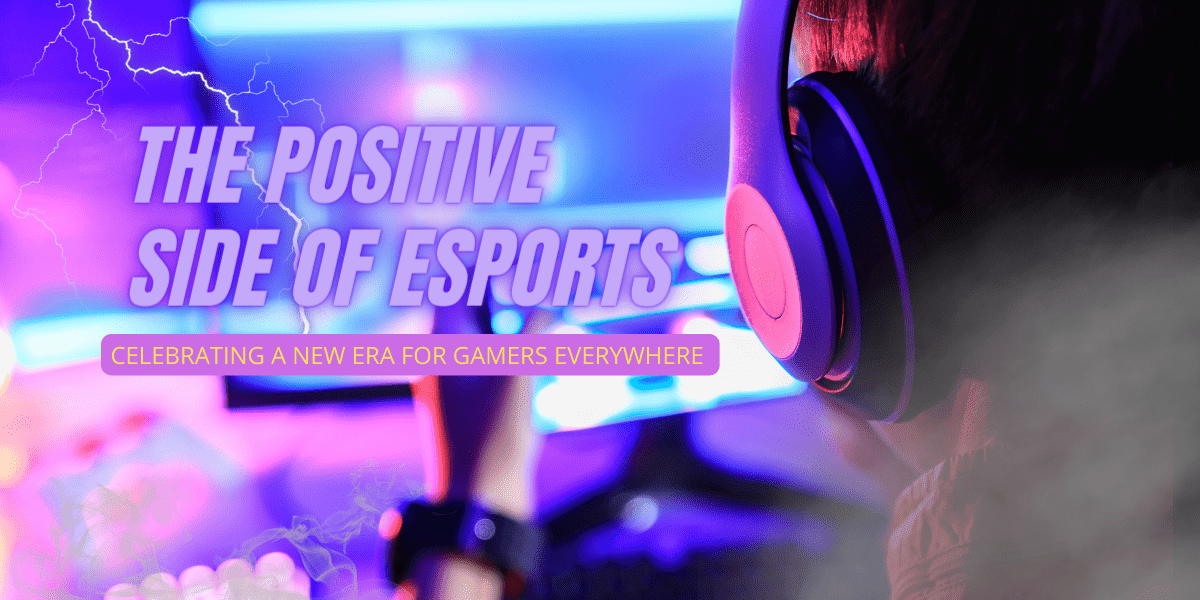Bringing Positive Light To Video Gaming and eSports Video gaming have been around for decades, but their popularity has recently skyrocketed. Unfortunately, this surge in attention isn’t all positive; video games and esports are often associated with negative stereotypes such as violence, addiction, and anti-social behavior.
This perception can be damaging to the industry and its participants, making it difficult for gamers to achieve success or even find acceptance. To correct this negative image of video gaming and esports, we must showcase the positive aspects of these activities.
eSports can benefit students, including increased physical activity, improved social skills, and better mental health. It can also help students develop problem-solving and critical thinking skills and teach them about teamwork and collaboration. Additionally, introducing eSports in schools can help bridge the digital divide between students from different backgrounds.
There are also several other benefits that eSports can provide to students. For example, participating in eSports can help students develop strong communication skills, as they need to communicate effectively with their teammates to succeed. It can also help students strengthen their time management skills, as they need to balance their school work with their eSports commitments.
Furthermore, eSports can help students learn to be resilient and persevere through challenges, as they may face setbacks and defeats in their eSports careers. This can help students develop a growth mindset and learn how to bounce back from setbacks in other areas of their lives.
Finally, participating in eSports can also be an excellent way for students to express their creativity and explore their passions. Many students who participate in eSports are passionate about gaming and technology, and eSports provide an outlet to pursue their interests in a structured and competitive environment. Overall, eSports can be a valuable addition to a student’s education and personal development.
-
- Improved hand-eye coordination: Studies have shown that playing video games can help improve a player’s hand-eye coordination. This enhances them to perform physical tasks and aid players in activities outside of gaming.
- Increased problem-solving skills: Problem-solving is an essential part of life. Video games can help improve a player’s problem-solving capabilities by offering puzzles and challenges that demand creative solutions.
- Improved multitasking ability: Video games may help gamers develop their ability to multitask, allowing them to access multiple tasks and assignments easily.
- Enhanced memory readiness: By playing games, gamers can practice their short-term memory and thinking skills, making them more adaptable to remembering and understanding new material quickly.
- Improved social skills: Video games can be played competitively or cooperatively, offering solo and team experiences. Playing in a team or competitively can help gamers develop social skills, including communication and leadership.
- An increased opportunity for eSports: With the rise in competitive gaming, eSports offer gamers a chance to become professional athletes and compete on a stage with millions of viewers worldwide.
Therefore, eSports, or competitive video gaming, shares many similarities with traditional sports. Like in traditional sports, eSports players must possess physical and mental skills to excel. Players must have quick reflexes, good hand-eye coordination, and the ability to make split-second decisions under pressure. They must also have the mental fortitude to handle the pressure of competition and the ability to work well in a team. The training required to excel in eSports is similar to that of traditional sports, with many players following rigorous practice schedules and working with coaches to expand their skills. Like traditional sports, eSports also foster community, teamwork, and support among its participants and fans, who compete to compete and watch tournaments and matches.
In conclusion, video games and esports have been unfairly associated with negative stereotypes. However, there are many ways to correct this image and promote a more balanced viewpoint. By showcasing the positive aspects of gaming, such as its ability to bring people together and improve cognitive skills, it is possible to demonstrate that gaming can be a healthy form of entertainment.
Furthermore, highlighting the success stories of professional gamers and esports teams can help create a more positive perception of the industry. Ultimately, by dispelling misconceptions about video games and esports, we can create an environment where everyone can enjoy these activities without fear or judgment.
